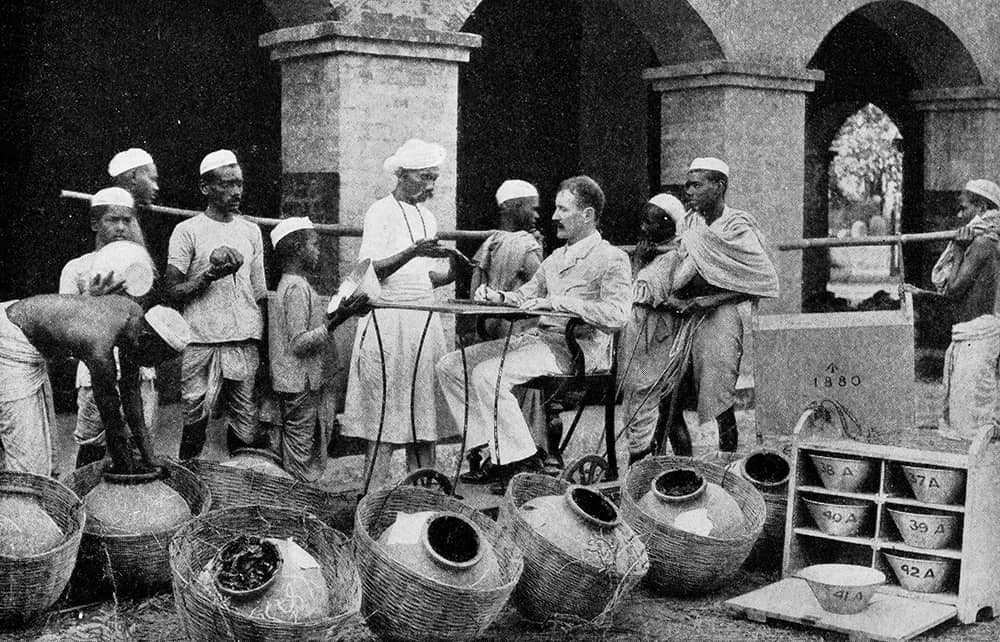Our neighbour Michael is a keen and knowledgable attender of vides-greniers, the equivalent of our car-boot sales. His focus is on old bottles, full or empty, and old china, but he’ll pick up anything that piques his fancy.
Some months ago, for example, he bought for €1 a glass tube of opium tablets issued to the French infantry during the Great War. Last week he reissued me with three of these little brown pills knowing that I had an abiding interest in the first world war and was using a modern version – white crystals of morphine sulphate in a red gelatine pill – to mask the pain I was experiencing due to the metastases in my bones. Perhaps the kindly impulse was that I could pretend I was a heroically wounded poilu for an afternoon instead of a nitwit English expat costing the French state a fortune on taxi fares alone.
I must have drifted off at about 4.30 on the morning of the 16 April 1916. It was pouring with rain
As it happened I was rereading Sir Edward Spears’s second volume of Great War memoirs, Prelude to Victory. Sir Edward was the chief liaison officer between ours and the French armies and this second volume details the negotiations between the French and British generals and politicians prior to the tragic so-called Nivelle offensive in 1917, in which General Nivelle was given command of the entire Allied force in France, bet the farm on a single, overwhelming British and French attack, and lost. The British section of that joint offensive was the Battle of Arras and the successful assault on Vimy Ridge. Calculated by the day, British casualties were greater at Arras even than on the Somme. The French attacks on the Aisne heights were so costly that the army mutinied and for several months the British continued the struggle alone.
Prelude to Victory isn’t as tragicomical a book as his earlier Liaison 1914. Nevertheless, his account of General Nivelle’s ludicrously overweening confidence of success, compared with the French politicians’ and generals’ grave doubts, and the latters’ reluctance to express those doubts to the great man’s face, does contain moments of high comedy. BBC iPlayer has a 1963 interview with Sir Edward and his kindly, deadpan patrician humour is as evident in his personality here as it is in his writing. I don’t suppose there are many who would say this now, but I find myself very attracted to this long- dead, not widely known, but once important Englishman, and would go as far as to say that I love him.
So one afternoon last week I was lying upstairs with one of Michael’s small brown military-grade opium tablets dissolving into my bloodstream, while reading Sir Edward Spears’s amazing account of the schoolboyish, two-faced behaviour of his commanders in the face of Nivelle’s increasingly Napoleonic certainties on the eve of attack.
I must have drifted off at about 4.30 on the morning of the 16 April 1916. It was pouring with rain. Up to their waists in their trenches, 53 waiting French divisions watched the bombardment of the plateau: 5,350 French guns were firing on a front of 40km. Zero hour was six o’clock. Down I sank. Down, down, down into that warm and comfortable nether world. The 100-year-old opiate seemed to have lost none of its potency. On the odd occasion when I’ve accidentally taken a double dose of modern French morphine sulphate and fallen asleep, the depths are equally profound. But the effect of these old ‘Poilu’s Friend’ on my dreams was somehow more organic, more exotic, more far-fetched.
I think I was dancing in tights in the chorus line of a smash-hit musical when I was ‘ripped untimely from the womb’ by a banging on the bedroom door. A stricken Catriona ran in to announce that she had just tested positive for Covid. For a disoriented moment I thought I had woken up during the flu pandemic of 1919.
Last week her plane was held on the runway at Gatwick for four hours. It was a weird, old plane, she said, with 200 packed tightly on board. Few wore face masks. Across the aisle from her a woman was coughing thickly and continuously. After a while Catriona said to her: ‘Shouldn’t you be wearing a face mask?’ It was nothing said the woman. A chest infection only. ‘Well, I don’t want a chest infection, either,’ said Catriona. It was this woman, asserts Catriona, who infected her and probably scores of others with Covid during the long delay with no air conditioning.
Catriona is asthmatic. One day she was so terribly ill she thought she might die. A massive dose of steroids on five consecutive days has pulled her through. Meanwhile I lie up here snorting Boots’ First Defence and slipping in and out of Never Never Land, while Nivelle squanders 187,000 compatriots in a single month and what’s left of his army mutinies.







Comments